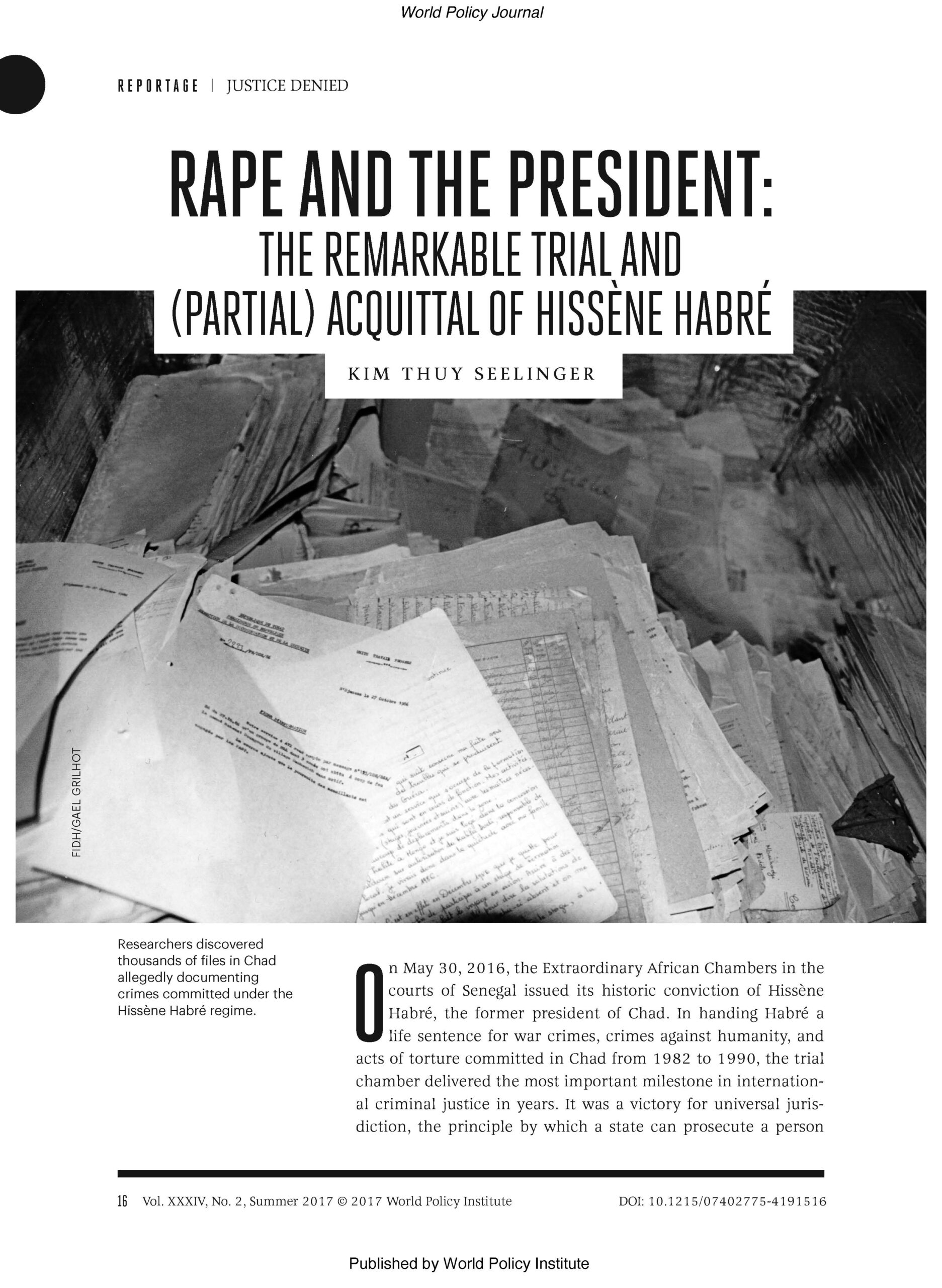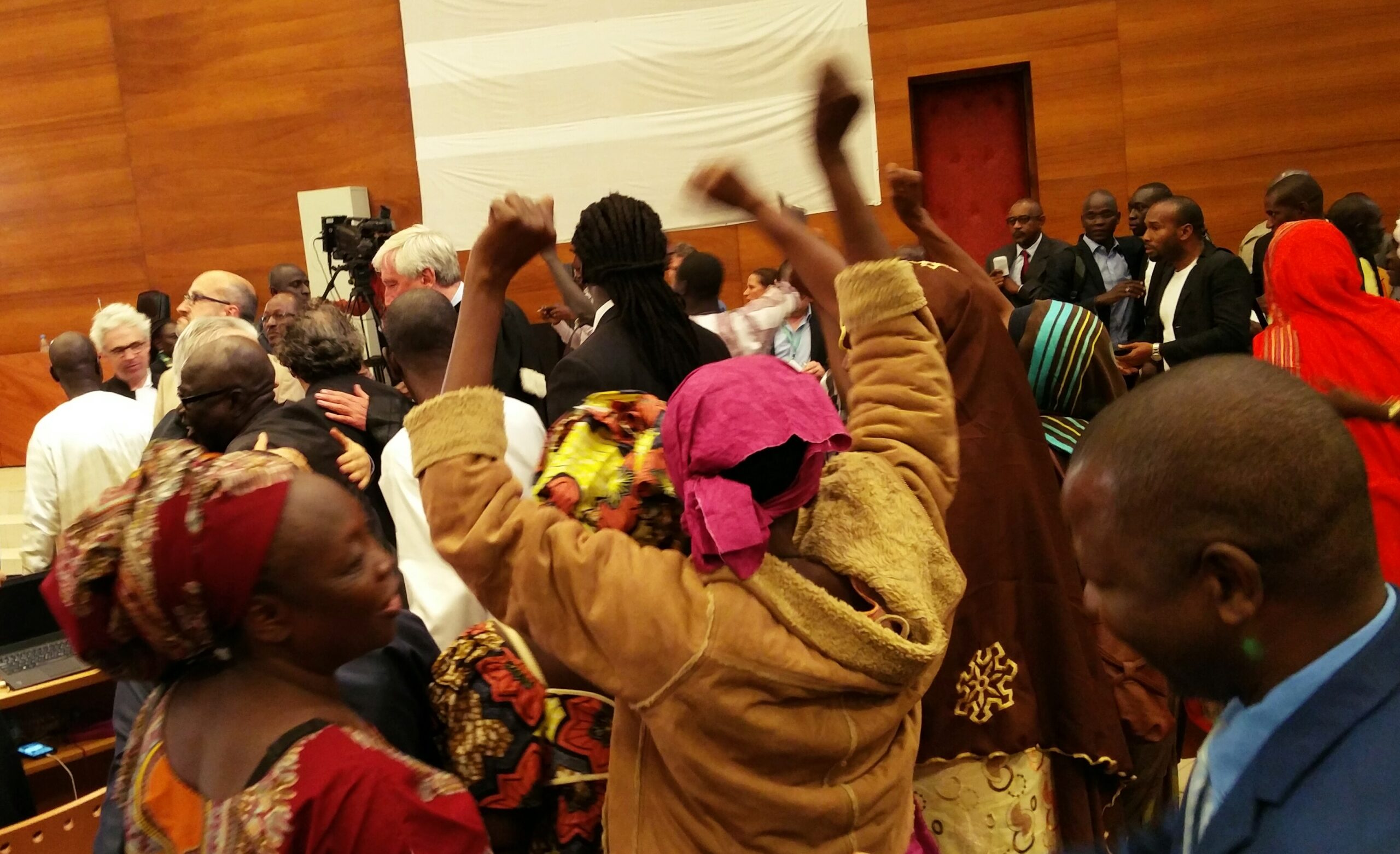Rape and The President: The Remarkable Trial and (Partial) Acquittal of Hissène Habré
Download PDFSummary
On May 30, 2016, the Extraordinary African Chambers in the courts of Senegal issued its historic conviction of Hissène Habré, the former president of Chad. In handing Habré a life sentence for war crimes, crimes against humanity, and acts of torture committed in Chad from 1982 to 1990, the trial chamber delivered the most important milestone in international criminal justice in years. It was a victory for universal jurisdiction, the principle by which a state can prosecute a person accused of atrocities regardless of where those atrocities were committed. The judgment was also the first time a domestic court had convicted a former head of state for war crimes and crimes against humanity. Finally, the decision was groundbreaking in terms of its considerable inclusion of sexual crimes. After trial judges amended charges to include acts of sexual violence, Habré was convicted of rape and sexual slavery committed as crimes against humanity and acts of torture. It was a remarkable day in a remarkable trial. On April 27, 2017, the appeals chamber upheld all of Habré’s convictions — except for one. In preserving the life sentence, Judge Wafi Ougadeye reaffirmed the trial judgment that had, in the course of a year, become famous for its elevated treatment of sexual violence. But the appeals chamber partially acquitted Habré of rape as a crime against humanity and act of torture on procedural grounds. It found that one woman, who accused Habré of personally raping her, had spoken up too late for the testimony to be included as evidence. In so doing, the court raised a critical question posed by the prosecution of sexual violence: How can courts balance survivors’ readiness to disclose their experiences with defendants’ rights to know the full nature of charges against them as soon as possible?

